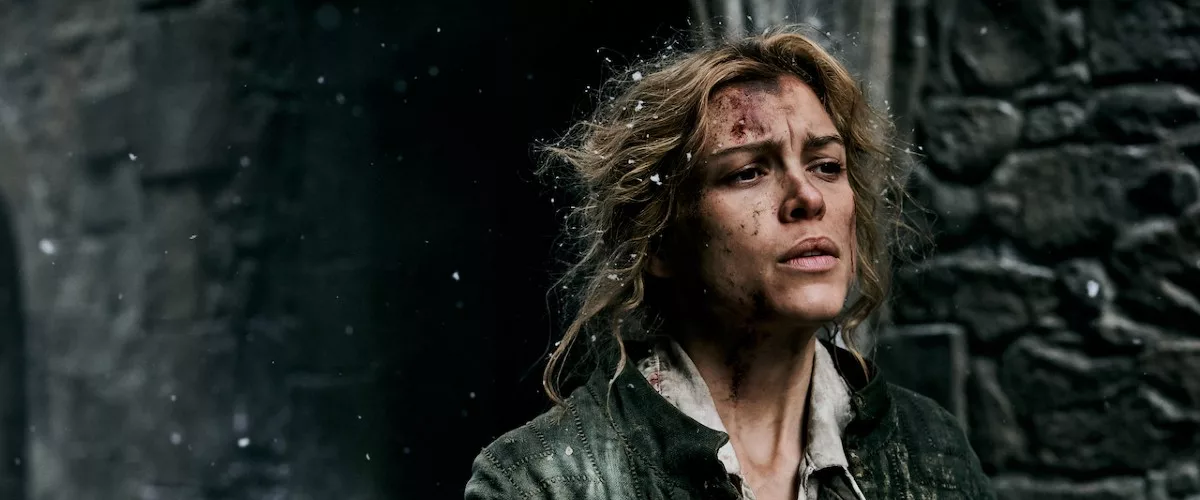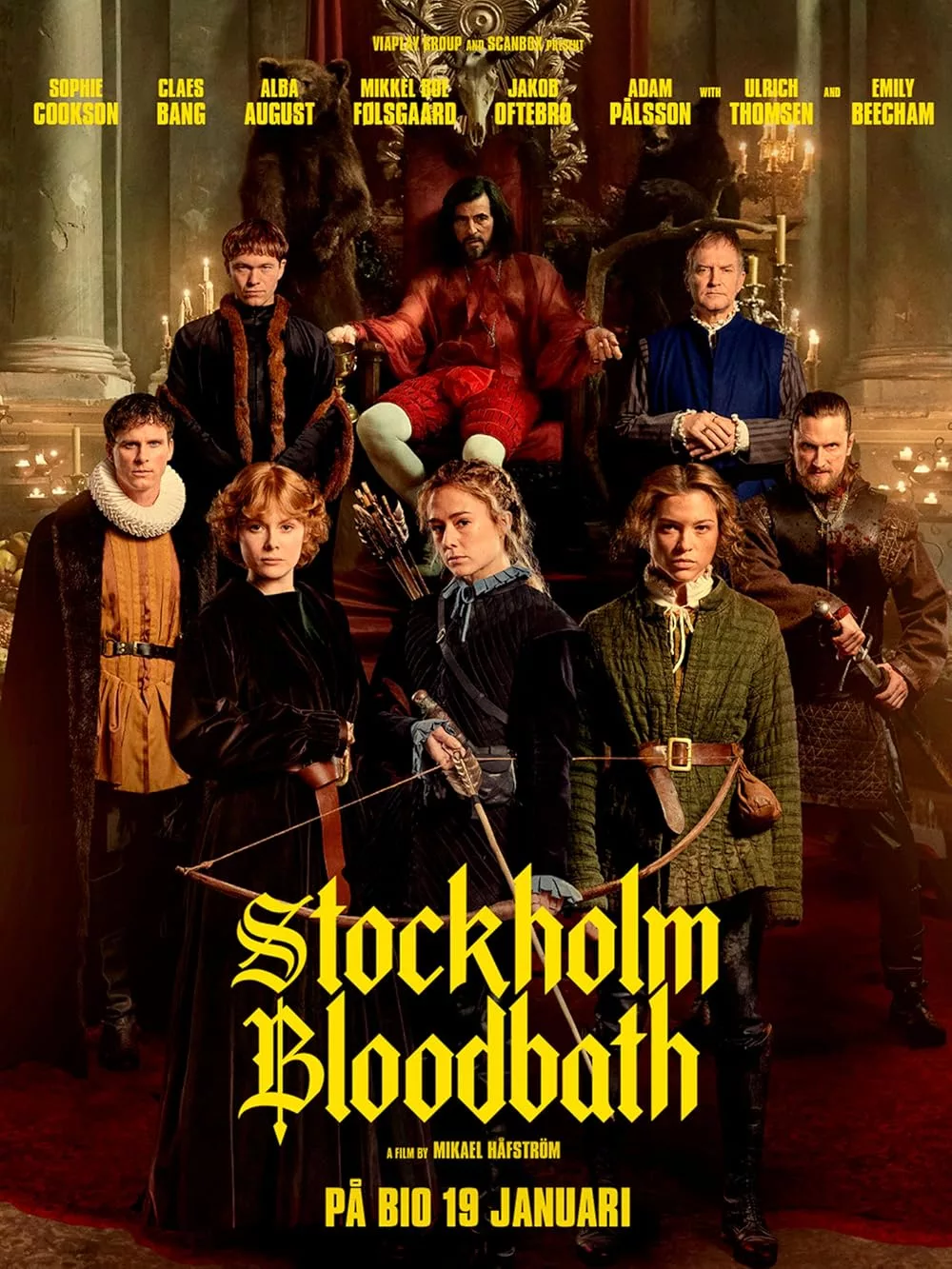Based on the same-named 16th-century historical event, “Stockholm Bloodbath,” from director Mikael Håfström, is an exploitation film that struggles to hold its intended tone. It’s a film filled with a plethora of players, most of whom are part of competing alliances. There are so many storylines and so much context necessary to pull this epic story forward that it’s difficult to channel the picture’s many deaths into a coherent emotion.
Set in 1520 Sweden, “Stockholm Bloodbath” springs forward when deaf huntress Freja Eriksson (Alba August) kills a Danish soldier in the snowy woods. She immediately races home to warn her father, the nobleman Ulf (Declan Hannigan), about the invading army. Ulf quickly dispatches Freja to spread the word as he attends to the marriage of his other daughter, Anne (Sophie Cookson), to Johan (Wilf Scolding). On her imperative journey, Freja barely evades an ambush at the hands of Danish soldiers.
A feature of the exploitation genre, each of the vicious military men has a name followed by an “aka.” There’s Didrik Slagheck (Mikkel Boe Følsgaard) aka ‘evil man,’ Sylvestre (Thomas Chaanhing) aka ‘guy with scar.’ Hans Gäblein (Viktor Filep), aka a ‘German brother,’ Adolf Gäblein (István Zámbó), aka ‘another German brother,’ and Holger (Roland Kollárszky), aka ‘big Danish guy.’ The nicknames serve two purposes, one revealed later in the film and the other as a winking joke. The latter, however, loses steam when other nicknames are merely people’s royal titles.
After these Danes send Freja reeling, they come upon Anne and Johan’s wedding, where they slaughter Anne’s family and take Johan prisoner. Anne and Freja eventually reunite, combining forces with the recently widowed Swedish ruler Kristina Gyllenstierna (Emily Beecham). Not only do they want to enact vengeance against the men who murdered their family, but they also want to stop the alliance of Danish King Kristian II (Claes Bang) and Archbishop Gustave Trolle (Jakob Oftebro)—angered by families like the Erikssons, who’d him convicted of treason three years ago — from taking over Sweden.
Incredibly, on top of this admittedly lengthy plot summary, there are plenty of other characters and subplots to follow, making the near-two-hour runtime a bit of a slog. Between courtly backstabbing and brutal beheadings, screenwriters Erland Loe and Nora Landsrød attempt to inject some misplaced levity into the dour proceedings. Kristian, for instance, jokes about Kristina, a woman, being described as a firm leader. That misogyny, of course, makes sense for the time. But it’s the delivery, told in a winking manner, that doesn’t align with the film’s heaviness. One would expect Bang to deliver such a quip less like a jester and more with deadpan wit. Once again, the comedic flair is a feature of exploitation, not a glitch, but it grates in the face of the lumbering subject matter (“Monty Python and the Holy Grail” this is not).
Outside of the wisecracking, there’s wonderful costumes. Fancy fits like Kristian’s red sheer blouse add a certain panache to this gloomy world. There are also devastating battles stylishly shot across a wide canvas. The camera sweeps across the war-torn terrain with startling swiftness in a film with little shyness in the face of gore. The film takes so much pleasure in the opulent carnage; when the beheadings begin, Slagheck literally dances in a rain of blood. That open violence is the main engine of the film, keeping us in a pervading terror that’ll eventually inspire people to rebel and further fuel the righteous desires of Anne and Freja.
Unfortunately, the gaze of “Stockholm Bloodbath” wanders and we lose sight of Anne and Freja. Their pains and heartaches are forced to fit around the other warring subplots in a way that subtracts their inherent pathos from this mostly brooding epic. In that sense, “Stockholm Bloodbath” is a half-promise. There’s plenty of blood to be had, but not much of it boils.




















